Digital Offshore Energy Education
About
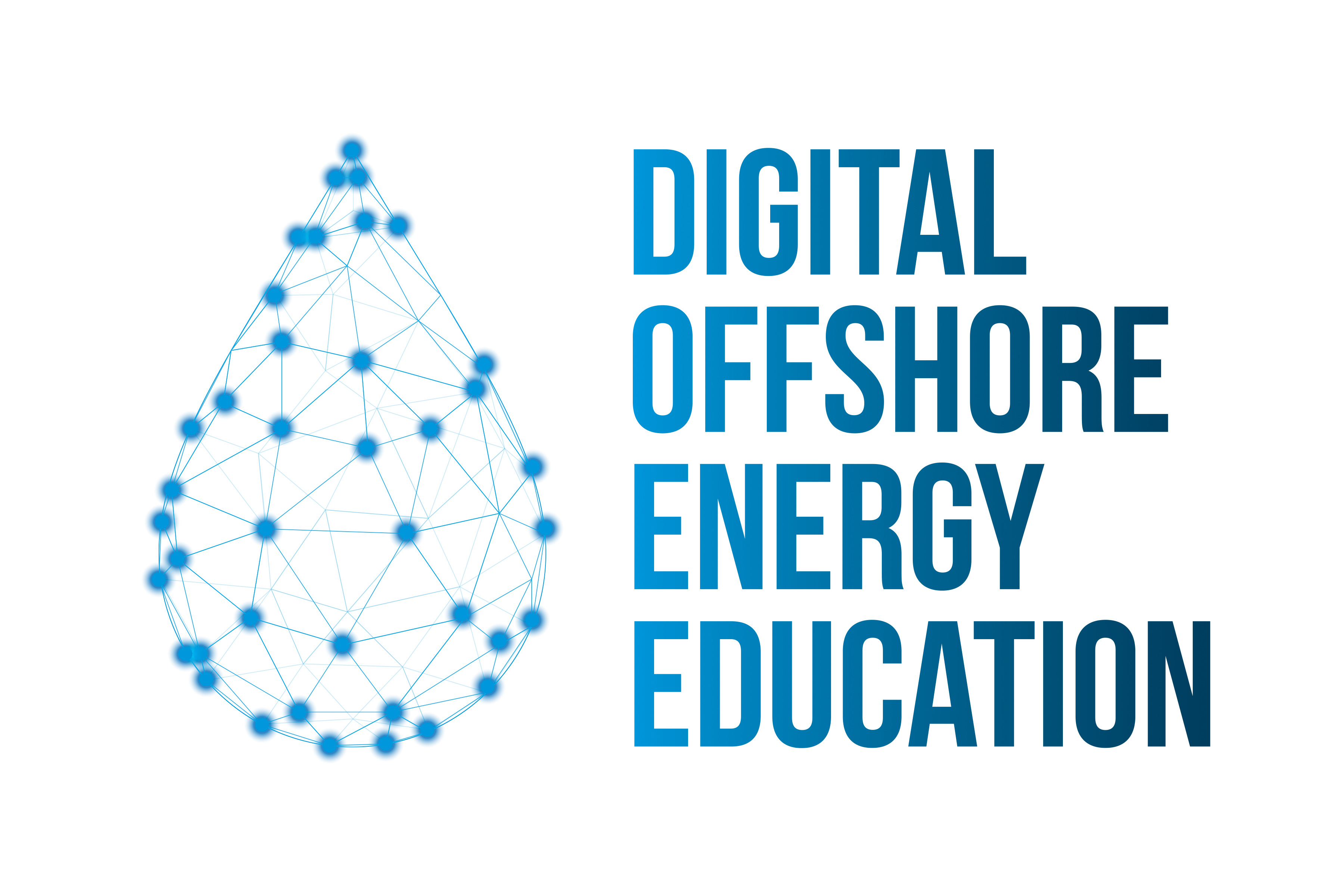
The Digital Offshore Energy (DOE) Education project aimed at developing a series of industrial courses, including Introduction to Digital Oilfield, Data Management for Digital Oilfield, High-Performance Computing for Digital Oilfield, Artificial Intelligence for Digital Oilfield, Instrumentation and Controls for Digital Oilfield, Computer Security and Communications for Digital Oilfield and Software Design for Digital Oilfield, that would enable engineers from different disciplines to learn the applications of AI and ML in the offshore energy industry.
Introduction to Digital Oilfield provides an overview of digitalization, including its definition, purpose, and motivations. The course explores digitalization in various industries, with a specific focus on the oil and gas sector. It covers oil and gas field development phases, the industry's transition to digital solutions, and the impact of technology on people, processes, and regulations. The course also introduces key concepts like big data management, high-performance computing, artificial intelligence, instrumentation and controls, computer security, and software for digital oilfields. It includes case studies and examples related to major offshore operations, such as drilling, reservoir surveillance, marine operations, environmental monitoring, asset integrity, and safety & risk.
Data Management for Digital Oilfield offers an overview of techniques for data gathering, management, and analysis in the context of digital oilfield operations. The course covers fundamental principles and applications of databases, data analytics, and data mining. Digital oilfield leverages sensor technology, big data storage, and seamless communication to acquire, store, and utilize real-time data for operational and business decision-making. The objectives include enhancing production efficiency, minimizing downtime, implementing field-wide optimizations, and optimizing reservoir recovery and management.
High-Performance Computing (HPC) for Digital Oilfield offers an overview of HPC principles and their application in the oilfield domain. It covers key topics such as computer architecture, parallel processing (including synchronization and communication), GPU utilization, and cloud computing. Given the substantial data generated by oilfield operations, real-time data processing becomes essential. HPC plays a crucial role in minimizing computational time for data processing. The course explores various applications, including seismic data processing, velocity modeling, reservoir simulations, multiphase flow modeling, remote monitoring, and dynamic positioning.
Artificial Intelligence (AI) in Digital Oilfield delves into essential AI concepts and their application in the oilfield domain. It covers topics such as knowledge representation, search algorithms, neural networks, and fuzzy logic. AI plays a vital role in enhancing prediction accuracy and enabling machine learning models with near-cognitive robotic comprehension. By leveraging AI, collaborative workflows gain inherent analysis capabilities, resulting in improved decision-making and process optimization.
Instrumentation and Controls for Digital Oilfield centers around the utilization of instrumentation and control systems in surface and downhole operations within the oil and gas industry. It covers essential subjects like measurement techniques, sensors, actuators, fundamental mathematics for control system design, and control system tuning. The course incorporates practical examples, including control valves for wells, pumps, pipes, chokes, and compressors, and explores their application in automated and remote operations.
Computer Security and Communications for Digital Oilfield offers a comprehensive overview of various wired and wireless communication systems. It covers essential topics including network security, cyber risks, and risk mitigation strategies. With the expanding presence of connected sensors, instrumentation, and remote monitoring systems in Digital Oilfield, communication requirements are on the rise.
Software Design for Digital Oilfield introduces key topics in software design, such as program structure, algorithms, data structures, program complexity, and program verification. It explores their applications in modeling, simulation, prediction, and optimization of technical or business processes.
This series of courses incorporates detailed examples and comprehensive case studies to facilitate a deeper understanding of theoretical concepts. The case studies are thoughtfully designed to cater to the needs of students and professionals from diverse backgrounds, including reservoir engineering, production, and offshore drilling. The introduced case studies seamlessly integrate key concepts such as missing values, data visualization, data pre-processing, and model development across various courses within the specialization. This allows learners to revisit and review these topics as needed. Moreover, the provided notebook includes helpful hints and notes for each section of the examples, ensuring that the case studies are easy to follow and learn from. Optimal oil recovery considers well placement and control, reservoir management, and production optimisaiton. These are large scale optimization problems requiring high and expensive computational time. To tackle these problems we apply parallel, derivative free optimization algorithms and pay careful attention to choices of simultaneous / monolithic versus alternating/sequential strategie.
If you are interested in any of these courses or a customized course offering, please contact us to arrange.
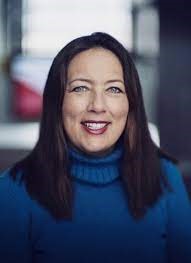
Team
Dr. Lesley James
Prof. Lesley James is a Professor and former Chevron Chair in Petroleum Engineering in the Dept of Process Engineering at Memorial University. Dr. James’ research interests focus on sustainable oil production by increasing oil recovery rates through enhanced and improved oil recovery (EOR & IOR). Currently, her focus is on maximizing recovery from offshore Newfoundland and Labrador oil and gas fields through understanding the fluid-fluid and rock-fluid interactions and particularly examining miscible/near-miscible fluid injection and optimal EOR strategies for offshore production. Working closely with industry, Dr. James is currently working on the use of CO2 for offshore oil recovery from complex reservoirs, integrated operations for maximising oil recovery in remote harsh locations, water-alternating-gas (WAG) using produced natural gas for Hibernia, EOR screening and production optimisation for Hebron, and using Digital Oilfield technologies to increase production and reduce costs.
Dr. James has been awarded the Society of Petroleum Engineer’s Distinguished Achievement Award for Petroleum Engineering Faculty and serves as mentor for the Student Society of Petroleum Engineers (SSPE), the Student Society of the European Association of Geoscientists and Engineers (EAGE), and the Student Metallurgy & Materials Society (MetSoc). Lesley is a Professional Engineer of Newfoundland and Labrador (PEGNL), is a member and past-president of the ociety of Core Analysts (SCA), a member and Atlantic section board member of Society of Petroleum Engineers (SPE), a member of the Canadian Society of Chemical Engineers (CSChE), and the American Society of Chemical Engineers (AIChE), and the European Association of Geoscientists and Engineers (EAGE).
Phone: 709-864-2485
Email: ljames@mun.ca
Office: IIC1019

Dr. Dennis Peters
Dr. Dennis Peters is the associate dean for undergraduate studies, Faculty of Engineering and Applied Science. He has been a professor in the Department of Electrical and Computer Engineering since 1998. His research involves techniques for design and verification of software and computer systems, with a particular focus on high-performance computing, real-time applications and parallel or distributed processing.
Dr. Peters is an active volunteer in the professional engineering community in Canada. He is a past chair of the Board of Directors of the Professional Engineers and Geoscientists of Newfoundland and Labrador (PEGNL), the Canadian Engineering Qualifications Board (CEQB) and the IEEE Newfoundland and Labrador Section. His teaching activity is primarily in the area of software, ranging from introductory programming courses to advanced topics such as real-time operating systems and concurrent programming.
When he can get away from his work, he enjoys spending time with his wife and two children. As weather and schedule permit he enjoys sailing his C&C 30 Sea Plus Plus around the beautiful bays of Newfoundland.
Phone: 709-864-8929
Email: dpeters@mun.ca
Office: EN4019
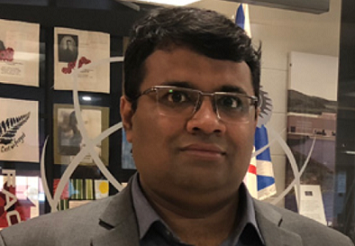
Dr. Mohsin Jamil
Dr. Jamil is currently an associate professor at the Faculty of Engineering,in the Department of Electrical & Computer Engineering here at Memorial University of Newfoundland, St. Johns, Canada. From 2016-2019, he worked in the Department of Electrical Engineering at the Islamic University of Madinah, Saudi Arabia. From 2012-2016, he worked in the robotics department of the National University of Sciences and Technology (NUST), Islamabad, Pakistan.
He earned his PhD degree in electrical engineering from the University of Southampton, U.K. in 2012 and obtained a master of science degree in electrical engineering from the National University of Singapore in 2008, with major in automation and control engineering. He completed a second master of science degree in electrical engineering from the Dalarna University Sweden in 2006. He completed a bachelor of engineering in industrial electronics engineering form NED University of Engineering and Technology, Karachi, Pakistan, in 2004.
He is author/co-author of several IEEE publications in journals and peer-reviewed conferences. He is the proud recipient of numerous awards and funding grants. He serves as an editorial member of IEEE Access, IEEE Canadian Journal of Electrical and Computer Engineering and Energies.
Phone: 709-864-2751
Email: mjamil@mun.ca
Office: CSF3124
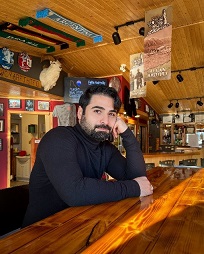
Mohammad Mahdi Ghiasi
Mahdi served as the Research and Project Engineer with a passion for defining data-driven strategies and developing end-to-end data science solutions. His 10+ years of hands-on industry experience and academic research have enabled him to develop in-depth management and problem-solving skills.
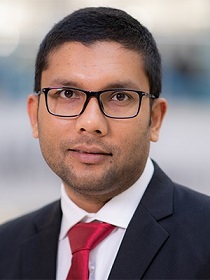
Dr. Tanjin Amin
Dr. Tanjin Amin is a Lecturer in the Artie McFerrin Department of Chemical Engineering at Texas A&M University- College Station, USA. In 2022, he earned his PhD degree in Process Engineering from Memorial University, Canada. He completed his Master's in Oil and Gas Engineering from the same institute in 2018. His bachelor was in Mechanical Engineering from Bangladesh University of Engineering and Technology (BUET) in 2013. He has a blend of industrial and academic experience. He worked in manufacturing plants. His research focus is applying data-driven methods to solve process safety-related problems, including but not limited to fault diagnosis, dynamic process monitoring, and process reliability. Recently, he has been developing technologies for green energy carriers at Texas A&M University. He is a recipient of many federal and institutional awards for his accolades and leadership and community services. He has co-authored 20+ peer-reviewed journal articles and contributed to 3 books. He has served as Guest Editor and Reviewer in many well-known journals.

Dr. Ibrahim Al-Nahhal
(IEEE senior member) is a research associate and per-course instructor at Memorial University, Canada, since 2021. He received the B.Sc. (Honours), M.Sc., and Ph.D. degrees in Electronics and Communications Engineering from Al-Azhar University in Cairo, Egypt-Japan University for Science and Technology, Egypt, Memorial University, Canada, in 2007, 2014, and 2020, respectively. Between 2008 and 2012, he was an engineer in industry, and a Teaching Assistant at the Faculty of Engineering, Al-Azhar University in Cairo, Egypt. From 2014 to 2015, he was a physical layer expert at Nokia (formerly Alcatel-Lucent), Belgium. He holds three patents. He co-authored 30+ peer-reviewed journals and conference papers in top-ranked venues. He serves as Editor of IEEE Wireless Communications Letters. He served as a Technical Program Committee and Reviewer for various prestigious journals and conferences. He was awarded the Exemplary Reviewer of IEEE Communications Letters in 2017. His research interests are reconfigurable intelligent surfaces, full-duplex communications, integrated sensing and communication, channel estimation, machine learning, design of low-complexity receivers for emerging technologies, spatial modulation, multiple-input multiple-output communications, sparse code multiple access, and optical communications.
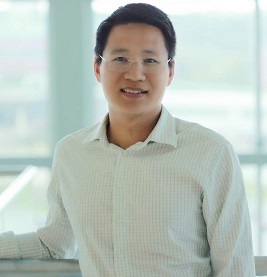
Dr. Trung Trinh
TRUNG TRINH received his B.Eng., M.Eng., and Ph.D. degrees from Irkutsk National Research Technical University (INRTU), Russia, in 2008 and 2012, respectively. From 2012 to 2017, he worked as a senior lecturer and researcher at PetroVietnam University (PVU), Vietnam. Subsequently, he served as a Postdoctoral Fellow at the Faculty of Engineering and Applied Science, Memorial University of Newfoundland (MUN), Canada, from 2019 to 2021. Currently, he works as a data integration developer at Verafin Inc. His primary research focuses on big data analytics, machine learning, artificial intelligence, deep learning, and digitalization within the oil and gas industry.

Md Monjur Ul Hasan
Md Monjur UI Hasan received the B.Sc. degree in computer science and engineering from the Chittagong University of Engineering and Technology, Bangladesh, in 2005, and the M.Sc. degree in geovisual analytics from the Memorial University of Newfoundland, Canada, in 2015, where he is currently pursuing the Ph.D. degree with the Department of Electrical and Computer Engineering. His research interests include data clustering, data analytics, and machine learning.

Dr. Erfan Mohagheghian
Erfan is a PhD graduate from the University of Calgary with a focus in reservoir engineering. He obtained his MSc in Oil and Gas Engineering from Memorial University and has a Bachelor’s degree in petroleum engineering from the Amirkabir University of Technology. He worked as a seasoned data analyst on the project where his vast experience in reservoir engineering was beneficial to the team.
Partners
-1075x793.jpg)
Contact
| Faculty Member | Contact Info |
|---|---|
| Dr. Lesley James |
Phone: 709-864-2485 Email: ljames@mun.ca Office: IIC1019 |
| Dr. Dennis K. Peters |
Phone: 709-864-8929 Email: dpeters@mun.ca Office: EN4019 |
Faculty of Engineering and Applied Science
Memorial University of Newfoundland
St. John's, NL